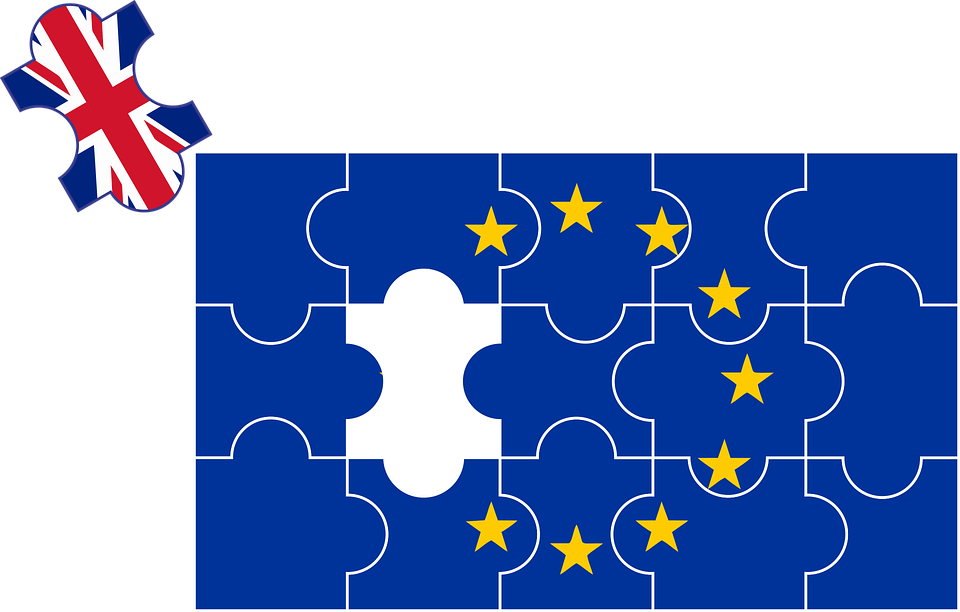The dilemma facing Brexit negotiators on the ‘Irish border’ question is how to retain an invisible, frictionless, ‘soft’ North-South border in Ireland and somehow avoid the seemingly inevitable reality of the emergence of a ‘hard’ border if the UK leaves the single market and the customs union.
Squaring this circle is a little tricky. It’s hard to have a border and not have a border all at the same time. Borders are a bit like boiled eggs, either hard or soft but not both simultaneously.
One possible response to this conundrum is to focus on placing ‘the border’ somewhere else – down the Irish Sea, to be precise. The EU and Dublin see advantages to this option.
It would facilitate Northern Ireland having a closer post-exit relationship with the EU than Britain and allow the continuation of a free North-South border.
However, having a border down the Irish Sea is opposed by the unionist parties, who regard it as an unacceptable separation of the core components of the United Kingdom of Great Britain and Northern Ireland.
Nigel Dodds emphatically opposed the idea on Saturday at the Democratic Unionist Party conference:
Make no mistake. For us the integrity of the United Kingdom is non-negotiable. If the EU wants to insist on border check points on the island of Ireland that is a matter for them. There will be no internal UK border in the Irish Sea.
While the view of the political parties and governments may be clear on this question, the views of the ordinary people of Northern Ireland have until now not been systematically reported.
Our new survey sheds light on the views of the public. In September, we asked a representative sample of the Northern Ireland population to react to the statement that: ‘People should be prepared to accept border controls between Northern Ireland and Great Britain, if this is agreed in the Brexit negotiations between the Government and the EU’.
Overall, 49% agreed with this, and 39% disagreed (with 12% neither agreeing or disagreeing). But, perhaps surprisingly, willingness to accept such controls was stronger among Leave voters (64% agreed), supporters of unionist parties (59%) and Protestants (54%).
This probably reflects a willingness to live with east-west border controls as the price of a Brexit successfully negotiated by the British government. Lower levels of agreement from Remain voters (44%), nationalist supporters (47%) and Catholics (43%) imply, by contrast, reluctance to contemplate any kind of new border controls.
Answers to a second question are interesting, but harder to interpret. Respondents were asked about their reactions to the statement ‘After the UK leaves the EU, there should be free movement across the Irish border, as at present, but border controls between the island of Ireland and Great Britain’.
Overall, 64% agreed and 25% disagreed (with 11% undecided). But this time the relationship with certain critical groups was reversed. Support was strongest among supporters of nationalist parties (75%), Remain voters (73%) and Catholics (68%) – but it was also high among unionist supporters (56%), Leave voters (also 56%) and Protestants (60%).
This may reflect acceptance of border controls as the price for keeping the land border as ‘frictionless’ as possible. But the question was a somewhat complex one, and respondents are likely to have had retention of a ‘soft’ land border uppermost in their minds, with a possible sea border a less immediate prospect.
Overall, these results suggest a willingness among the Northern Ireland public to contemplate imaginative new relationships across the Irish Sea. But as this issue becomes more of a focus of public debate, opinion may shift and positions may harden as such matters become more politicised.
The striking consensus in Northern Ireland among all parties on the need to avoid the re-appearance of a hard North-South border, reflecting worries about trade disruption and renewed political violence, highlights the need for fresh thinking.
Drawing a dotted line down the Irish Sea with a water-resistant marker might attract an unexpected level of support, or at least not attract too vehement a level of popular opposition from the public.
In one sense it’s a compromise, demanding concessions from both sides. Remainers would simply have to accept the legitimacy of the UK-wide result that the UK is indeed leaving the EU, while Leavers would have to live with some variation across the post-exit UK in terms of the relationship each part has with the EU.
Allowing the geographical border in the Irish Sea to take some pressure off the existing land border might, in theory at least, achieve the holy grail of politics, keeping citizens equally but mildly unhappy — no dancing in the streets, but no rioting either.
Note: The survey was designed by QUB researchers, Professors Coakley and Garry, and the fieldwork was conducted by Ipsos MORI between 7th and 27th September 2017, consisting of 1,015 interviews with members of the public.
The overall sample was representative of the Northern Ireland population in terms of age, gender, social class and geographical location, and interviews were conducted face-to-face and in-home using Computer Assisted Personal Interviews (CAPI).
Professor John Coakley and Professor John Garry are based in the School of History, Anthropology, Philosophy and Politics (HAPP) at Queen’s University Belfast.
Their previous work on understanding voting in the EU referendum in Northern Ireland is available at:
How Northern Ireland voted in the EU Referendum and what it means for border talks
This is a guest slot to give a platform for new writers either as a one off, or a prelude to becoming part of the regular Slugger team.
Discover more from Slugger O'Toole
Subscribe to get the latest posts to your email.
